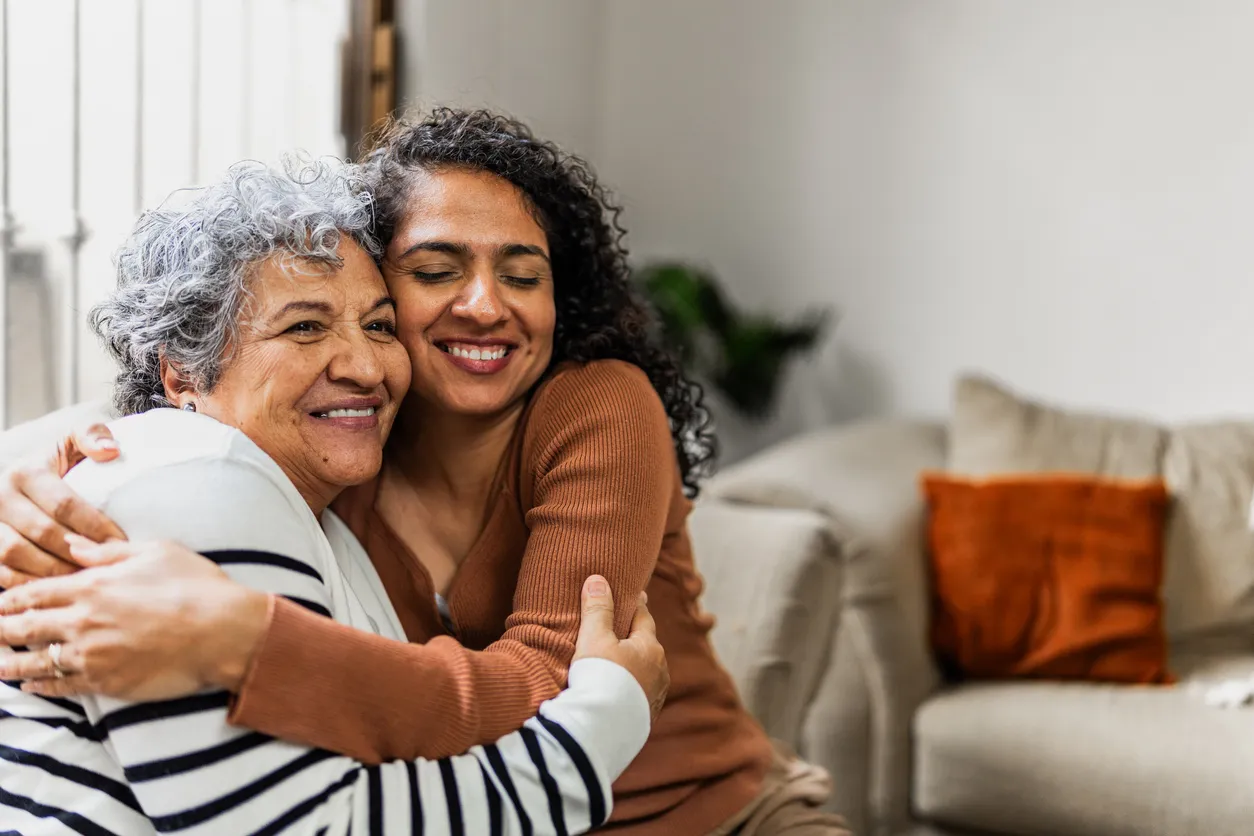
As a caregiver for a loved one with dementia, ensuring their safety is one of your top priorities. Dementia patients face a variety of challenges that can put them at risk for accidents, including falls, wandering, and confusion about their surroundings. As cognitive abilities decline, so does the ability to assess and avoid hazards. Falls, in particular, are a significant concern, as they can lead to serious injuries, hospitalizations, and a decline in quality of life. Fortunately, there are many strategies you can use to prevent accidents and keep your loved one safe.
This article explores practical safety tips to help prevent falls and other accidents in dementia patients, creating a safer environment both at home and outside.
1. Why Falls Are Common in Dementia Patients
Falls are one of the most common accidents that affect dementia patients. As dementia progresses, several factors can increase the risk of falls:
- Impaired judgment: Dementia patients may have difficulty judging distances, heights, or surfaces, making them more prone to stumbling or tripping.
- Balance and coordination issues: Cognitive decline can also affect motor skills, leading to unsteady movements or difficulty with tasks like walking, bending, or turning.
- Medications: Some medications used to treat dementia or other health conditions can cause dizziness, sedation, or weakness, further increasing the risk of falls.
- Visual and sensory impairments: Reduced vision or changes in depth perception can make it harder for dementia patients to navigate their environment safely.
- Confusion and disorientation: Patients who are confused or disoriented may not be able to recognize hazards in their environment, such as stairs, furniture, or uneven flooring.
2. Creating a Fall-Proof Home Environment
The environment plays a crucial role in preventing falls and other accidents. Making simple adjustments to the home can greatly reduce the risk of injury.
a. Remove Obstacles
Clutter and obstacles in the home can pose tripping hazards for dementia patients. Ensure that pathways are clear and easy to navigate.
Tips for removing obstacles:
- Keep floors clear: Remove rugs, cords, or furniture that could cause someone to trip. If you must use rugs, make sure they have non-slip pads underneath.
- Ensure clear walkways: Keep hallways and rooms free of furniture or objects that may block movement. Use lightweight furniture that can be easily moved if necessary.
- Tidy up daily: Check for and clean up spills immediately to prevent slipping, especially in the kitchen or bathroom.
b. Improve Lighting
Poor lighting can make it difficult for dementia patients to see obstacles or changes in the environment, increasing the risk of falls.
Lighting tips:
- Install nightlights: Place nightlights in hallways, bathrooms, and near the bed to help guide your loved one during the night and prevent accidents in low-light conditions.
- Ensure good illumination: Use bright, even lighting in all rooms, especially staircases and areas where your loved one spends a lot of time.
- Use motion-sensor lights: Motion-sensor lights are especially helpful for nighttime or evening use, turning on automatically when someone enters a room or hallway.
c. Secure Furniture
Furniture that is unstable or difficult to use can increase the risk of falls. Make sure that your loved one can safely interact with the furniture around them.
Tips for securing furniture:
- Secure heavy items: Ensure that large or heavy furniture, such as bookshelves and cabinets, are properly anchored to the wall to prevent tipping.
- Choose sturdy furniture: Opt for chairs, tables, and other furniture that are stable and easy for your loved one to sit on or use.
- Add grab bars: Install grab bars near the toilet, in the shower, and along any stairs to provide additional support when your loved one is standing or walking.
3. Promoting Mobility and Balance
Maintaining mobility and balance is key to fall prevention. Exercise can help dementia patients retain strength, flexibility, and coordination, while mobility aids can provide extra support.
a. Encourage Physical Activity
Engaging your loved one in regular, gentle exercise can improve strength, balance, and coordination, reducing the risk of falls.
Physical activity ideas:
- Chair exercises: Simple exercises like seated leg lifts, arm stretches, or gentle torso twists can help improve strength and flexibility.
- Walking: If your loved one is able, encourage regular walking. Start with short walks and gradually increase the duration as they become more comfortable.
- Tai Chi or yoga: These gentle, low-impact exercises are great for improving balance and flexibility. You can find online videos designed for seniors or those with dementia to guide you both.
b. Use Mobility Aids
If your loved one struggles with balance, a walker, cane, or wheelchair can provide additional support and prevent falls.
Tips for mobility aids:
- Choose the right aid: Depending on your loved one’s needs, a cane, walker, or even a rollator (a walker with wheels) may be necessary. Consult with a healthcare provider to determine the best option.
- Ensure proper fit: If using a cane or walker, make sure it’s the right height and adjusted to your loved one’s needs. The healthcare provider can assist with fitting and teaching proper use.
- Supervise use: Always supervise the use of mobility aids to ensure your loved one is using them safely and correctly.
4. Addressing Behavioral and Cognitive Factors
Behavioral and cognitive issues associated with dementia can also contribute to accidents and falls. By addressing these factors, you can help minimize the risk of injury.
a. Manage Confusion and Disorientation
Dementia patients may not recognize their surroundings or may become disoriented, which increases the risk of accidents.
Tips for managing confusion:
- Create a familiar environment: Surround your loved one with familiar items and labels. Label rooms, doors, and furniture with clear, easy-to-read signs.
- Establish routines: Keep daily activities, such as meals, bathing, and bedtime, on a regular schedule to reduce confusion and help your loved one feel secure.
b. Limit Access to Hazardous Areas
Certain areas of the home, such as the kitchen or bathroom, can be more dangerous due to sharp objects, hot surfaces, or water hazards.
Safety tips for hazardous areas:
- Lock away dangerous items: Store cleaning supplies, medications, sharp objects, and tools in locked cabinets to prevent access.
- Supervise bathroom use: Always supervise your loved one when they are in the bathroom, especially during bathing or showering. Consider installing non-slip mats or grab bars for added safety.
- Control water temperature: To prevent burns, set the water heater to a safe temperature (typically no higher than 120°F) and check the temperature before your loved one uses the shower or bath.
5. Monitor Health and Medications
Health conditions, including dizziness, muscle weakness, or visual impairments, can contribute to an increased risk of falls. Similarly, medications can cause side effects like dizziness, drowsiness, or weakness that may increase the risk of accidents.
Health and medication tips:
- Review medications regularly: Consult with your loved one’s healthcare provider about the side effects of medications, especially if they cause drowsiness or dizziness. Adjustments may be necessary.
- Regular check-ups: Ensure your loved one has regular medical check-ups to monitor their overall health, mobility, and vision. Address any underlying health conditions that may contribute to falls.
6. When to Seek Professional Help
While many falls and accidents can be prevented with home modifications and careful attention, it’s important to seek professional help if your loved one experiences frequent falls, serious injuries, or behavioral changes.
When to consult a doctor:
- Frequent falls: If your loved one falls repeatedly, it’s important to consult with a healthcare provider to assess their overall health, medication, and balance.
- Injuries: Seek immediate medical attention if your loved one falls and sustains an injury, such as a fracture or head trauma.
- Behavioral changes: Significant changes in behavior, such as increased aggression or agitation, may indicate an underlying medical issue that needs to be addressed.
Preventing falls and other accidents is a top priority for dementia caregivers. Dementia patients may require more supervision and support, but with careful planning and a proactive approach, you can help them live safely and independently for as long as possible.

